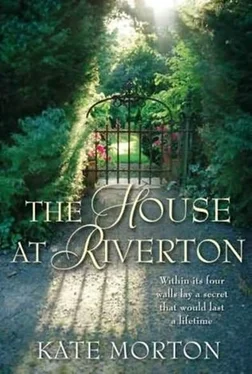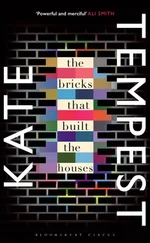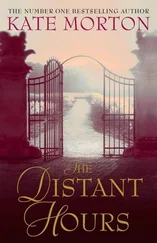Forgive this intrusion, but we begin shooting in late February at Shepperton Studios, north of London, and I am most keen to make contact with you. I do hope you might be interested in lending your hand to this project. I can be reached c/- Mrs Jan Ryan at 5/45 Lancaster Court, Fulham, London SW6.
Yours respectfully,
Ursula Ryan
Last November I had a nightmare.
It was 1924 and I was at Riverton again. All the doors hung wide open, silk billowing in the summer breeze. An orchestra perched high on the hill beneath the ancient maple, violins lilting lazily in the warmth. The air rang with pealing laughter and crystal, and the sky was the kind of blue we’d all thought the war had destroyed forever. One of the footmen, smart in black and white, poured champagne into the top of a tower of glass flutes and everyone clapped, delighting in the splendid wastage.
I saw myself, the way one does in dreams, moving amongst the guests. Moving slowly, much more slowly than one can in life, the others a blur of silk and sequins.
I was looking for someone.
Then the picture changed and I was near the summer house, only it wasn’t the summer house at Riverton, it couldn’t have been. This was not the shiny new building Teddy had designed, but an old structure with ivy climbing the walls, twisting itself through the windows, strangling the pillars.
Someone was calling me. A woman, a voice I recognised, coming from behind the building, on the lake’s edge. I walked down the slope, my hands brushing against the tallest reeds. A figure crouched on the bank.
It was Hannah, in her wedding dress, mud splattered across the front, clinging to the appliquéd roses. She looked up at me, her face pale where it emerged from shadow. Her voice chilled my blood. ‘You’re too late.’ She pointed at my hands, ‘You’re too late.’
I looked down at my hands, young hands, covered in dark river mud, and in them, the stiff, cold body of a dead foxhound.
I know what brought it on, of course. It was the letter from the film-maker. I don’t receive much mail these days: the occasional postcard from a dutiful, holidaying friend; a perfunctory letter from the bank where I keep a savings account; an invitation to the christening of a child whose parents I am shocked to realise are no longer children themselves.
Ursula’s letter had arrived on a Tuesday morning late in November and Sylvia had brought it with her when she came to make my bed. She’d raised heavily sketched eyebrows and waved the envelope.
‘Mail today. Something from the States by the look of the stamp. Your grandson, perhaps?’ The left brow arched-a question mark-and her voice lowered to a husky whisper. ‘Terrible business, that. Just terrible. And him such a nice young man.’
As Sylvia tut-tutted, I thanked her for the letter. I like Sylvia. She’s one of the few people able to look beyond the lines on my face to see the twenty year old who lives inside. Nonetheless, I refuse to be drawn into conversation about Marcus.
I asked her to open the curtains and she pursed her lips a moment before moving onto another of her favourite subjects: the weather, the likelihood of snow for Christmas, the havoc it would wreak on the arthritic residents. I responded when required, but my mind was with the envelope in my lap, wondering at the scratchy penmanship, the foreign stamps, softened edges that spoke of lengthy travails.
‘Here, why don’t I read that for you,’ Sylvia said, giving the pillows a final, hopeful plump, ‘give your eyes a bit of a rest?’
‘No. Thank you. Perhaps you could pass my glasses though?’
When she’d left, promising to come back and help me dress after she’d finished rounds, I prised the letter from its envelope, hands shaking the way they do, wondering whether he was finally coming home.
But it wasn’t from Marcus at all. It was from a young woman making a movie about the past. She wanted me to look at her sets and judge their authenticity, to remember things and places from long ago. As if I hadn’t spent a lifetime pretending to forget.
I ignored that letter. I folded it carefully and quietly, slid it inside a book I’d long ago given up reading. And then I exhaled. It was not the first time I had been reminded of what happened at Riverton, to Robbie and the Hartford sisters. Once I saw the tail end of a documentary on the television, something Ruth was watching about war correspondents. When Robbie’s face filled the screen, his name printed across the bottom in unassuming font, my skin prickled. But nothing happened. Ruth didn’t flinch, the narrator continued, and I went on drying the dinner plates.
Another time, reading the newspaper, my eye was drawn to a familiar name in a write-up in the television guide; a program celebrating seventy years of British films. I noted the time, my heart thrilling, wondering if I dared watch it. In the end it was a disappointment. There was very little about Emmeline. A few publicity photos, none of which showed her true beauty, and a clip from one of her silent films, The Lady Waits , which made her look strange: hollow-cheeked; jerky movements like a marionette. There was no reference to the other films, the ones that threatened such a fuss. I suppose they don’t rate a mention in these days of promiscuity and permissiveness.
But although I had been met with such memories before, Ursula’s letter was different. It was the first time in over seventy years that anyone had associated me with the events, had remembered that a young woman named Grace Reeves had been at Riverton that summer. It made me feel vulnerable somehow, singled out. Guilty.
No. I was adamant. That letter would remain unanswered.
And so it did.
A strange thing began to happen, though. Memories, long consigned to the dark reaches of my mind, began to sneak through cracks. Images were tossed up high and dry, picture perfect, as if a lifetime hadn’t passed between. And, after the first tentative drops, the deluge. Whole conversations, word for word, nuance for nuance; scenes played out as though on film.
I have surprised myself. While moths have torn holes in my recent memories, I find the distant past is sharp and clear. They come often lately, those ghosts from the past, and I am surprised to find I don’t much mind them. Not nearly so much as I had supposed I would. Indeed, the spectres I have spent my life escaping have become almost a comfort, something I welcome, anticipate, like one of those serials Sylvia is always talking about, hurrying her rounds so she can watch them down at the main hall. I had forgotten, I suppose, that there were bright memories in amongst the dark.
When the second letter arrived, last week, in the same scratchy hand on the same soft paper, I knew I was going to say yes, I would look at the sets. I was curious, a sensation I hadn’t felt in some time. There is not much left to be curious about when one is ninety-eight years old, but I wanted to meet this Ursula Ryan who plans to bring them all to life again, who is so passionate about their story.
So I wrote her a letter, had Sylvia post it for me, and we arranged to meet.
This morning when I woke, the thread of nervous energy that had infused me all week had overnight become a knot. Sylvia helped me into a new peach dress-the one Ruth bought me for Christmas-and exchanged my slippers for the pair of outside shoes usually left to languish in my wardrobe. The leather was firm and Sylvia had to push to make them fit, but such price respectability. I am too old to learn new ways and cannot abide the tendency of the younger residents to wear their slippers out.
My hair, always pale, is now flossy white, and very fine, finer it seems with each passing day. One morning, I feel sure, I will wake up and there will be none left, just a few fairy threads lying on my pillow that will dissolve before my eyes. Perhaps I am never going to die. Will merely continue to fade, until one day, when the north wind blows, I will be lifted and carried away. Part of the sky.
Читать дальше












